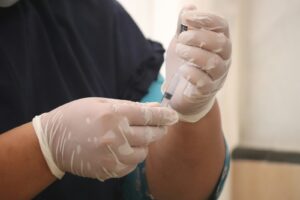Academics to study lockdown impact on families
Researchers are to examine how lockdown restrictions have affected the families of care home residents.
A team, led by the University of Edinburgh’s School of Social and Political Science, will assess the psychological impact – and the wider social repercussions – of distancing and other Covid-19 related constraints.
The academics will also evaluate how physical-distancing restrictions on families have influenced the quality of care.
And it will explore the creative methods used to encourage positive interaction between care home residents and their loved ones. Its findings will inform future policy and practice.
Since lockdown, residents’ family members and non-essential visitors have been unable to enter care home premises.
Although the Scottish Government has said it will allow care home residents to receive visitors outside from today (3 July), provided their home meets strict criteria, with infection control measures remaining in place.
Lead researcher Dr George Palattiyil, Senior Lecturer of Social Work, said ongoing involvement is a key concern for families once a relative has been admitted to a care home.
Lockdown, he added, has the potential to compound any fears and anxieties, and possibly amplify the psychological impact of having a family member in care.
Researchers will work with care homes across Scotland to recruit around 50 family carers whose relatives are residents. They will be interviewed and asked to fill out an online survey.
Staff in care homes will also be invited to share innovative ways they have managed to communicate with relatives.
The project involves the University’s Usher Institute, the University of the West of Scotland, the University of Strathclyde and the Institute for Research & Innovation in Social Services.
It has been awarded £150,000 by the Chief Scientist Office. Researchers will engage with Scottish Government policy teams throughout the project.
‘An understanding of how to support the health and wellbeing of family caregivers and loved ones supporting older people is significant given the impact the pandemic is having,’ said Dr Palattiyl.
Photo Credit – Free-Photos (Pixabay)
















